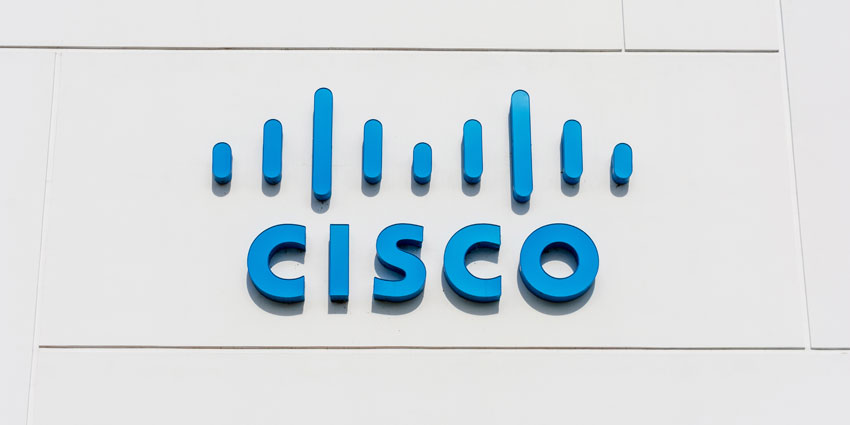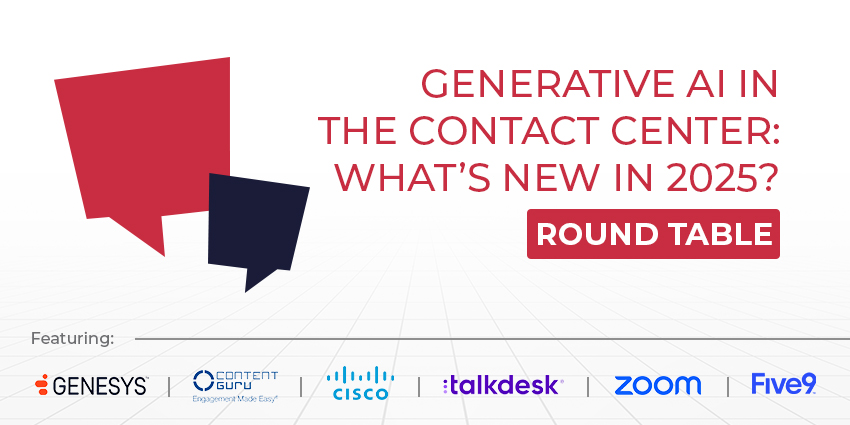Staying ahead of the curve with your IT infrastructure in today’s world is a process that requires constant investment and innovation. In the evolving digital landscape, legacy and on-premises hardware often fails to give businesses the agility they need.
This is particularly true as the volume of data created and managed by businesses continues to increase. Studies show that around 2.5 quintillion bytes of data is produced by companies each day.
A flexible, cloud-native data platform gives organizations the flexibility and scalability they need to collect, manage, and leverage essential insights more effectively. Here are five reasons why companies should consider using a cloud-native solution to increase their CX operations’ potential for AI.
1. Transforming and Improving Collaboration
Effective collaboration has always been an essential component of business growth. However, as workplaces evolve and expand, bridging the gaps between employees has become increasingly difficult. A cloud-native data platform ensures your team members can access essential data, insights, and resources, regardless of where they are.
With a comprehensive cloud ecosystem, companies can bridge the gap between a range of collaborative tools for file sharing, video conferencing, messaging and more. Data scientists and developers can interact securely with team members through private cloud workspaces, and staff can share knowledge in seconds.
Companies can even connect the dots between customer service and back-office teams, by unifying their CX and collaboration tools within the cloud. What’s more, with role-based access control features, you’ll be able to ensure only authorized personnel can access and share your data.
2. Improved Business Continuity
No matter how carefully you manage your data ecosystem, unexpected issues can still happen. In 2024, even small instances of data loss (fewer than 100 files) can equate to a financial loss of between $18,000 and $35,000, according to one study.
Leveraging a cloud-native data platform for your business and CX processes, ensures you can implement comprehensive strategies to protect against data loss. For instance, companies like ULAP Networks, a leading cloud data platform provider, provide businesses with proactive business continuity planning solutions, to ensure they’re prepared for the unexpected.
ULAP’s Chief Executive, Dominic McDonald points out: “For global businesses, pivoting to cloud-native data platforms is a big part of robust business continuity. They empower companies to weather unexpected data loss incidents – ranging from minor disruptions to major outages – with minimal impact on operations. For example, clients have leveraged our cloud-native solutions to seamlessly recover from regional disruptions while activities and data remain unaffected. Through features like automated disaster recovery and scalable resources, cloud-native platforms ensure that businesses can quickly bounce back, maintaining the trust of their customers and stakeholders.”
ULAP Networks designs their solution to ensure you can respond to disasters as quickly as possible. Automated and rapid response recovery capabilities give you a way to minimize interruptions to your essential operations.
3. Enhanced Business Insights
Collecting and managing data from your CX and business processes isn’t just crucial for compliance purposes. It’s also the key to unlocking valuable insights you can use to optimize your organization, and access opportunities for growth. A cloud-native data platform gives you a more holistic view of all your business operations, in one unified ecosystem.
It can centralize all of your business applications around the globe, giving you full visibility into your contact center and CRM data, your unified communications data, and more. Moreover, a cloud-native data platform lays the groundwork to transition more easily into benefiting from AI practices. With AI, solution providers even offer the capacity to amplify access to real-time analytics, powered by in-memory data stores.
This feature of a cloud-native platform allows business leaders and teams to enhance current analytical capabilities, but ensures businesses are well-equipped to leverage the full potential of AI for their ROI, thereby securing a competitive edge in a rapidly evolving IT landscape.
4. Reliability and Scalability
Probably the most obvious benefit of shifting your data ecosystem into the cloud with a native platform provider, is unlimited scalability. The right cloud vendor will ensure you can automatically scale your ecosystem up or down according to your needs, adding new features, users, and capabilities whenever necessary. Most importantly, they’ll ensure you can build a resilient environment.
For instance, ULAP’s cloud platform enables inherent resilience through a microservices architecture. With the “Smart Cloud Network” offering, deployed across multiple strategic data centers, companies gain access to a secure gateway for fully redundant global services.
Enterprises can connect their ecosystem to any of ULAP’s smart nodes, connecting to SaaS partners in over 113 countries worldwide. ULAP can even offer managed services solutions, where they handle everything from licensing, to network management, and IT maintenance on your behalf.
5. Opportunities for Rapid Innovation
Finally, leveraging a cloud-native data platform for your business processes and CX strategies doesn’t just give you the freedom to add new users and locations at speed. It also ensures you can tap into new and innovative technologies quickly, as your organization grows.
In the cloud, companies can set up automated smart routing policies, for agile bandwidth that adjust allowance based on optimal application performance. They can take advantage of advanced contact center integrations, unifying their UCaaS and CCaaS stacks, and even develop new applications with ease.
For instance, ULAP cloud IT professionals can work directly with your team and guide you through a cloud infrastructure that streamlines and enhance business processes. This ensures you can retain a competitive edge as your business evolves.
Unlock the Full Potential of the Cloud
A cloud native data platform gives businesses the flexibility and freedom they need to unify and monitor business operations, teams, and workflows. Despite the concerns that come with technology transitions, such as data security and budget, the right cloud-native platform solution promises modern enterprises greater ROI from reducing operational costs, increasing productivity, and transforming customer experiences.
Using a cloud-native data platform from an intelligent solution provider like ULAP, companies in every industry can bridge the gaps between their data, develop unified workflows, and even tap into what’s next come for business innovation like AI tools.
Dominic says: “Teams require faster and more intelligent access to insights and data, especially when it comes to CX and global operations. Leveraging cloud-native data platforms is a priority, for enhancing operations, as it breaks down silos and fosters real-time visibility and collaboration.
The ULAP Smart Cloud Network is designed for high-availability and real-time visibility from anywhere in the world. Most of our major clients are operating in at least a few regions, from North America and Europe, to the emerging markets of MENA, LATAM and APAC.”
If you’re looking for a way to access the full benefits of the cloud, derive more value from your data, and empower your teams, a cloud-native data platform could be the ideal solution.







